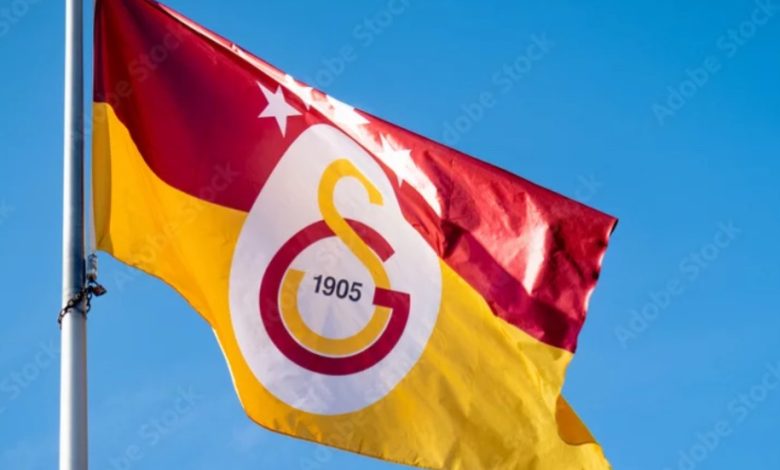Galatasaray S.K.: A Rich Legacy of Success, Passion, and Dominance in Turkish Football


Galatasaray Spor Kulübü, commonly known as Galatasaray, is one of the most successful and well-known football clubs in Turkey. Based in Istanbul, the club has a long and storied history, not just in domestic football but also in European competitions. Known for its passionate fan base, intense rivalries, and a legacy of significant achievements, Galatasaray continues to be a major force in Turkish football.
The Founding of Galatasaray
Galatasaray was founded in 1905 by a group of students from Galatasaray High School in Istanbul, which is one of the oldest schools in Turkey. The club’s early days were focused on general sports, but football quickly became the main focus of the club. Galatasaray’s early involvement in Turkish football was pivotal in the development of the sport in the country.
The club’s name, Galatasaray, is derived from the school’s name, which in turn comes from the Galata district in Istanbul, where the school was initially located. Over the years, Galatasaray has built a reputation not just for its football team but also for its excellence in other sports like basketball, volleyball, and athletics, making it one of Turkey’s most successful multi-sport clubs.
Domestic Success and National Titles
Galatasaray has had unparalleled success in Turkish football, dominating both the Süper Lig (the top tier of Turkish football) and national cup competitions.
• Süper Lig Titles: Galatasaray has won the Süper Lig title multiple times, making them one of the most successful clubs in the history of the competition. They have won the Turkish league 22 times (as of 2024), with their most recent title coming in the 2022-2023 season.
• Turkish Cups: The club has won the Turkish Cup 18 times, showing their dominance in domestic cup competitions. Their success in the Turkish Super Cup is also remarkable, having secured 16 titles.
European Glory: The UEFA Cup and Champions League
Galatasaray’s impact on European football is monumental, as they became the first Turkish club to win a major European title.
• 1999–2000 UEFA Cup: Galatasaray’s most significant achievement on the European stage came in 2000 when they won the UEFA Cup (now known as the UEFA Europa League), defeating Arsenal in a dramatic penalty shootout in the final. This victory was monumental as it made Galatasaray the first and only Turkish club to win a major European trophy.
• UEFA Super Cup 2000: Galatasaray also made history by winning the UEFA Super Cup in 2000, defeating Real Madrid, the European champions at the time. This victory added to their reputation as a club capable of competing with the best in Europe.
These triumphs in Europe solidified Galatasaray’s place as a club of international repute, and they continue to participate in European competitions, regularly qualifying for the UEFA Champions League and Europa League.
Rivalries and Passionate Fanbase
Galatasaray’s success on the field is mirrored by the passion and loyalty of their fans. The club has one of the most dedicated fanbases in Turkey, known as Cim Bom or Aslanlar (Lions), and their fierce following often fills the Türk Telekom Stadium (now known as NEF Stadium) in Istanbul to full capacity.
The club’s rivalry with Fenerbahçe is the most intense and historic in Turkish football. This rivalry, often referred to as the Intercontinental Derby, is one of the most heated and passionate in world football, with both teams competing fiercely for dominance in Istanbul and Turkey. Matches between Galatasaray and Fenerbahçe are known for their high intensity, passionate displays of support, and occasionally, moments of controversy.
Another important rivalry is with Beşiktaş, forming the three major Istanbul-based clubs in Turkish football, known collectively as the “Big Three.” Matches between these clubs are highly anticipated and are often seen as decisive for the league title.
Key Coaches and Managers
Galatasaray has seen many influential coaches come and go throughout its history, but a few have left an indelible mark on the club’s success:
• Fatih Terim: Often referred to as “The Emperor”, Fatih Terim is one of the most important figures in Galatasaray’s history. His managerial tenure spans multiple periods, with Terim leading the club to domestic and European success. He was at the helm during their historic 2000 UEFA Cup victory and has won several league titles with the club. His strong leadership and tactical acumen have made him a legendary figure among Galatasaray supporters.
• Wim Jonk: Known for his tactical approach and vision, Wim Jonk also helped steer the team to success during his time at the club, contributing to some of their European campaigns.
• Roberto Mancini: The Italian manager took over Galatasaray in 2011 and brought renewed success to the team. Mancini led the team to Süper Lig titles and Turkish Cup victories during his tenure, while also making a significant impact in European competitions.
Key Players
Over the years, Galatasaray has been home to some of football’s biggest stars. The club has consistently attracted world-class talent, both domestically and internationally. Some key players who have made significant contributions to the club include:
• Hakan Şükür: One of the most iconic players in the club’s history, Hakan Şükür was known for his prolific goal-scoring abilities and leadership. He was instrumental in Galatasaray’s success during the late 1990s and early 2000s.
• Arda Turan: A product of Galatasaray’s youth academy, Arda Turan became a fan favorite and one of the club’s most important players. His performances earned him a move to Barcelona, but he remains one of Galatasaray’s most influential and beloved players.
• Didier Drogba: The legendary Ivorian striker, who had previously achieved fame with Chelsea, played for Galatasaray from 2013 to 2014. Drogba’s leadership and performances in big matches made him an instant hit with the fans.
• Felipe Melo: Known for his tough and combative style of play, Brazilian midfielder Felipe Melo played a key role in the midfield during one of Galatasaray’s most successful periods in the 2010s.
Galatasaray’s Global Network
Galatasaray’s influence extends beyond Turkey, with a strong global presence. The club’s participation in European competitions, especially in the UEFA Champions League, has helped raise its profile internationally. Additionally, the club’s commercial success and worldwide fanbase, particularly in the Middle East and Europe, make it one of the most marketable clubs in Turkey.
Current Status and Future Prospects
As of 2024, Galatasaray continues to be one of the dominant clubs in Turkish football, regularly competing for the Süper Lig title and in European competitions. The club’s current efforts are focused on maintaining its competitive edge domestically while striving to make an impact in European tournaments.
Galatasaray remains committed to its youth development programs and is always looking to scout emerging talent from across the globe. With strong leadership, an ever-growing fanbase, and an ambitious vision for the future, the club looks set to continue its legacy as one of Turkey’s most successful and celebrated football teams.
Conclusion
From its humble beginnings in 1905 to becoming a powerhouse in Turkish football and Europe, Galatasaray S.K. has established itself as a symbol of passion, success, and resilience. With a rich history of domestic titles, European glory, and a fanbase that embodies the true spirit of football, Galatasaray continues to be a major force in the football world. Their story is far from over, and the Lions of Istanbul are always ready to roar again. Read also Manchester United Football Club: A Journey Through History, Trophies, and Legacy

